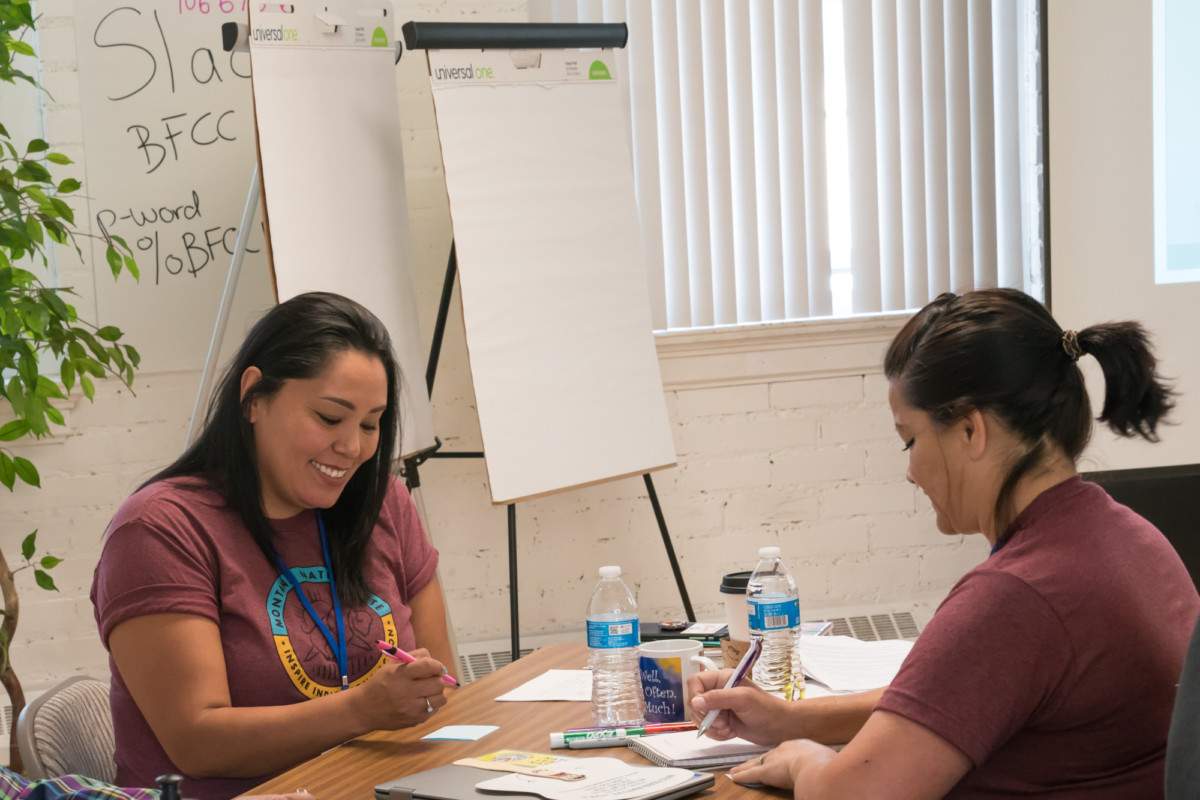Did you know that Truthout is a nonprofit and independently funded by readers like you? If you value what we do, please support our work with a donation.
On July 5 and again on September 6, 2018, Donald Trump flew to Montana, a state he won by 20 points in 2016, to hold a rally for Matt Rosendale, the Republican challenger to two-term Democrat incumbent Senator Jon Tester. Tester is one of 10 Democrat senators running in states where Trump won.
The Montana Senate race is one of the most watched campaigns in the nation. Trump, the Republican Party, and outside conservative groups see the seat as “up for grabs,” and recent polls show that the race is close. The Real Clear Politics average has Tester leading by up to 5.5 percent while a new internal poll conducted for the National Republican Senatorial Committee shows Rosendale leading Tester by two points.
Who comes out on top will by and large be determined by how many Native people in Montana turn out to vote, said Michaelynn Hawk, a member of the Crow Tribe of Montana and the executive director of Indian People’s Action, an organization that works on social justice and Native voter registration and turnout.
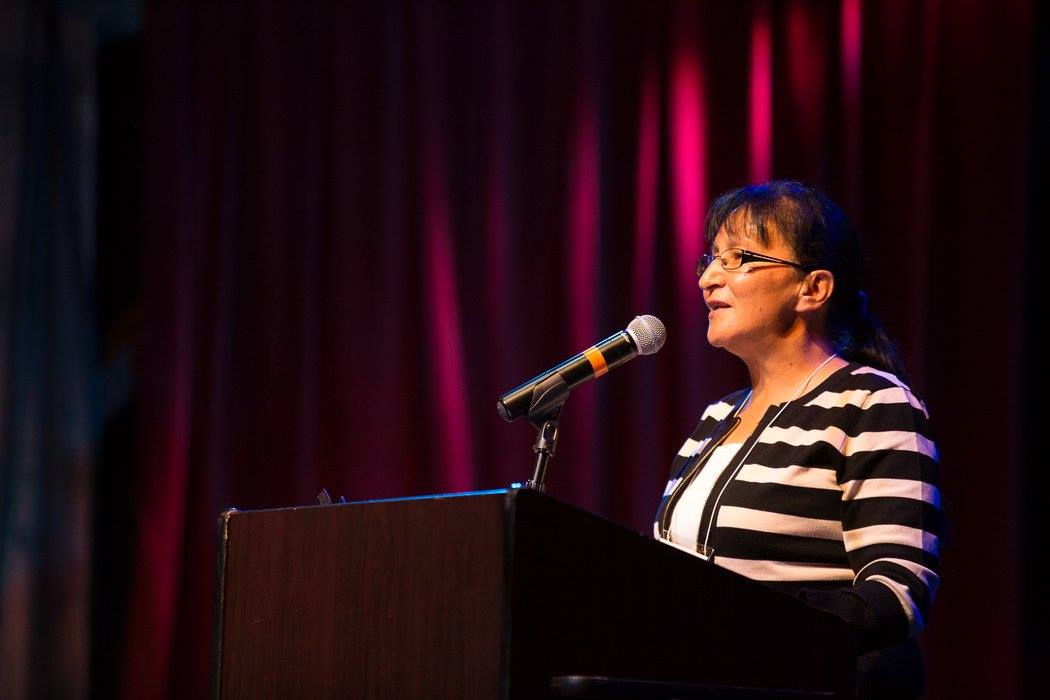
“Natives put people into office,” Hawk told Truthout.
Alissa Snow — who grew up on the Fort Belknap and Blackfeet Indian Reservations of Montana, and who works year-round to register, educate and turn out Native voters in her role as the state field director for Western Native Voice — agreed with Hawk.
“Our vote is important,” she told Truthout. “And you see politicians on both sides starting to realize that. They are spending more and more time in our reservation areas, they are coming to our pow-wows, they are hosting feeds, they are giving speeches to our people. I am hoping they also realize that they can’t take our vote for granted.”
The Power of the Native Vote
American Indians make up about 79,000 of Montana’s 1 million residents, (about 7.9 percent of the population), although actual population numbers are likely higher due to the lack of accurate census data on reservations. Native people make up Montana’s largest minority group, with around 32,000 people who are voting age, and they constitute a voting block that can’t be ignored by politicians seeking statewide office.
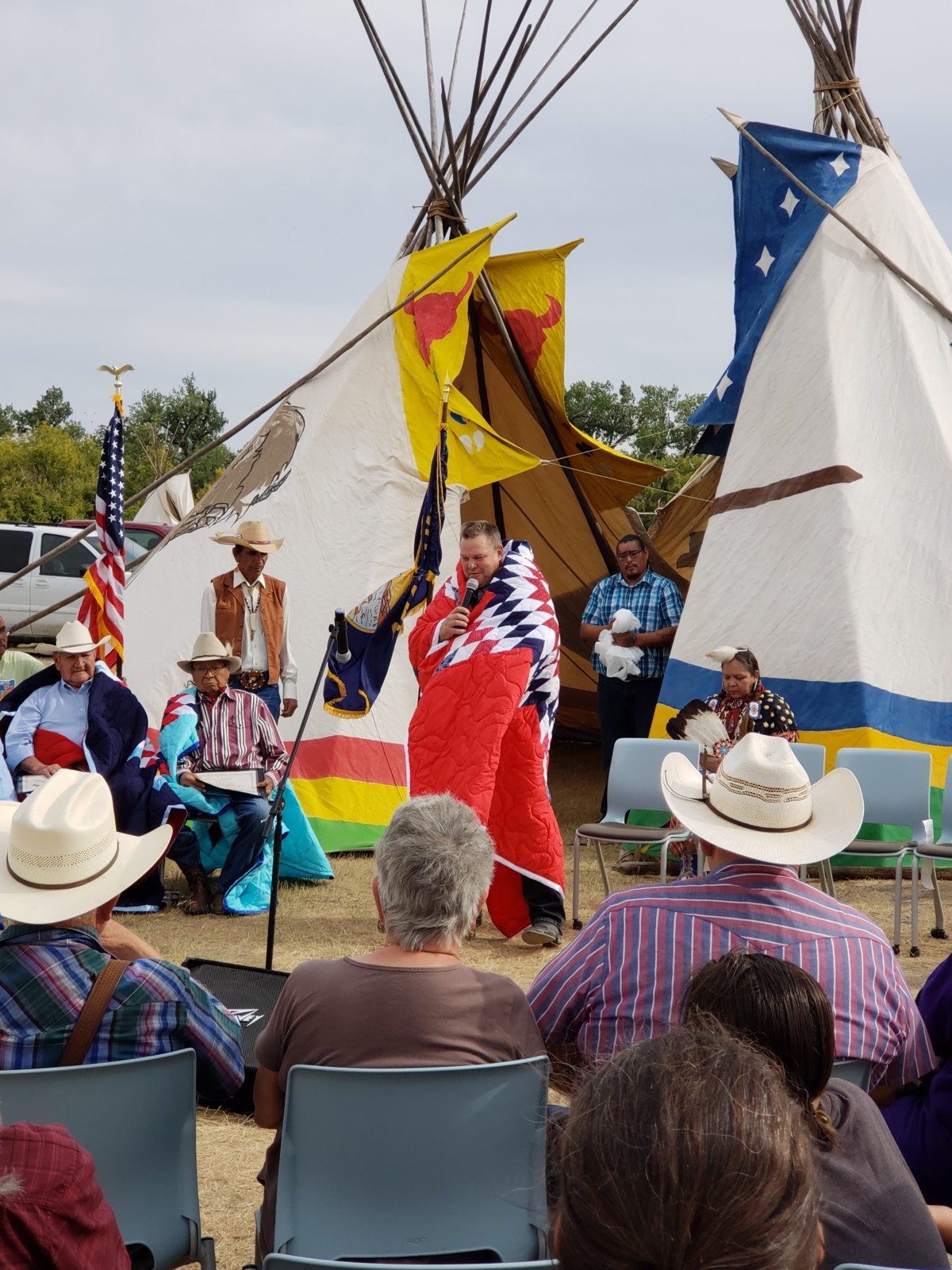
In 2006, Jon Tester challenged longtime Republican Senator Conrad Burns and won by a narrow margin of 3,400 votes with over 17,000 votes cast on reservations. As the numbers came in, Tester and Burns were neck and neck until the early morning hours of November 5. Then the votes started coming in from Rosebud County, where much of the Northern Cheyenne Reservation is located. The Native vote put Tester over the top.
In 2012, Tester beat a well-known Republican challenger and Montana’s lone congressional representative, Denny Rehberg, by 16,600 votes and won by over 7,000 votes in counties with substantial Native populations.
Voter turnout on reservations has been increasing due to organizing work by groups like Indian People’s Action and Western Native Voice and through decades of litigation brought by tribal members under the Voting Rights Act of 1965. According to data collected by Western Native Voice, turnout in Native communities rose during the last two presidential elections, increasing from 57 percent in 2012 to 59 percent in 2016.
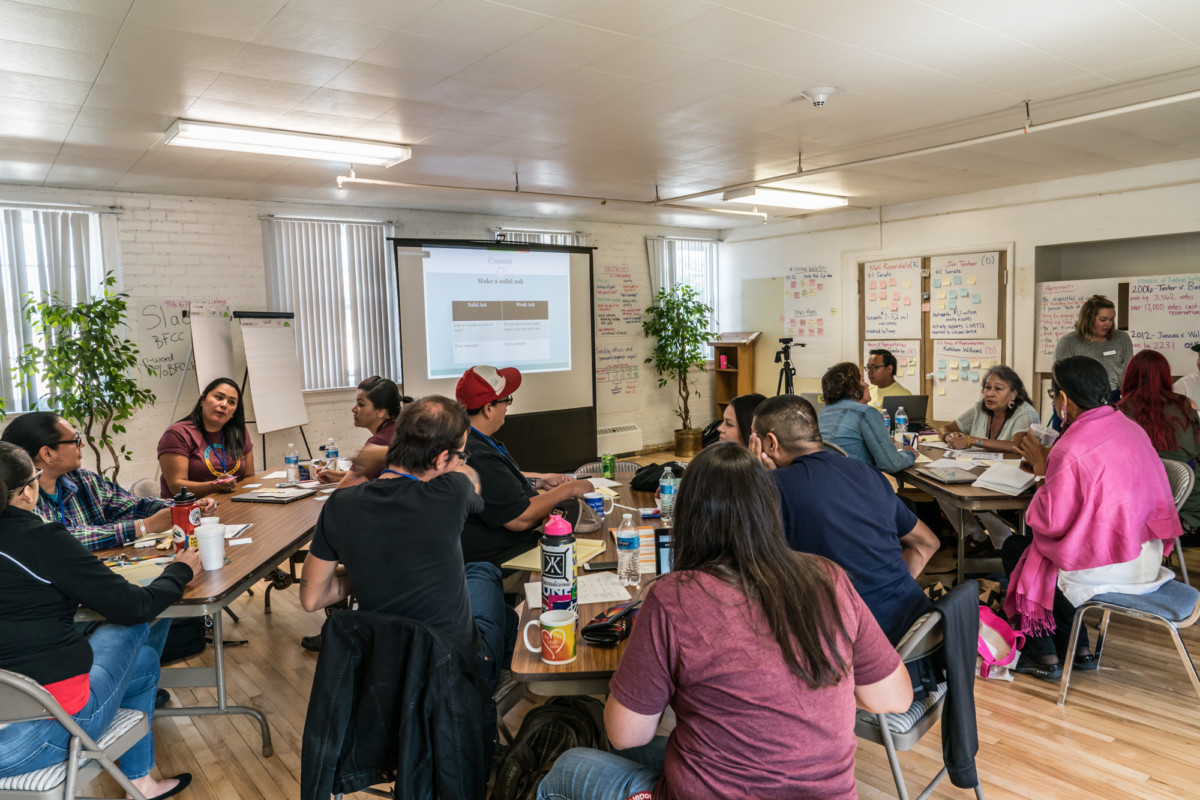
Montana Tribal Members See High Stakes in 2018 Senate Race
On July 5, when Trump took the stage in Great Falls, Montana, he repeatedly used the name “Pocahontas” to refer to Senator Elizabeth Warren.
Montana’s American Indian Caucus, made up of nine tribal legislators, took notice and responded quickly in an opinion piece that ran in many of Montana’s newspapers:
What Trump did was take the name of a real Indian person (whose history has already been distorted beyond recognition in popular culture) and transformed it into a racially bigoted epithet. This is plainly unacceptable and beneath the dignity of the office of the president.
Sharon Stewart-Peregoy, a Crow tribal member and a member of the legislative caucus that penned the letter, told Truthout that she finds Trump’s rhetoric and actions against tribal communities extremely troubling.
“There is so much bigotry, and all the things that have happened with Trump’s intolerance. It feels like we are back to the 1950s in terms of people of color,” Stewart-Peregoy said. “That’s the main issue I see in the midterm elections and the race between Tester and Rosendale.”
Rosendale, a millionaire real-estate developer who moved to Montana from Maryland in 2002, has tied himself closely to President Trump. His campaign materials and website promote him as an ardent Trump supporter..

During the September 6 Trump-Rosendale rally in Billings, as Trump stood close by, Rosendale emphasized his support of Trump’s policies, telling the gathered crowd:
Montana is going to right a wrong this November and we’re going to send you the conservative reinforcements you need to continue your good work. My promise to each and every one of you is that I will always put Montana first and stick with President Trump to advance his agenda.
This rhetoric has many tribal members in Montana worried, since Trump has repeatedly gone against tribal interests.
Hawk, from Indian People’s Action, points to the issue of tribal health care. When Rosendale was in the Montana legislature, he voted against the bipartisan bill to expand Montana’s Medicaid program. The bill, which eventually passed, directed the state of Montana to accept millions of federal dollars to extend subsidized health coverage to low-income Montanans. Through the expansion, 15,000 Native Americans were subsequently enrolled.
Rosendale also supported repealing the Affordable Care Act without a replacement, which would have eliminated the portion of that law that committed federal funding for tribal health care around the country, a move that the National Indian Health Board warned would be “catastrophic.”
“This election, in many ways, is a life or death situation for Natives.” Hawk said.
Many Natives in Montana see this election between Rosendale and Tester as inexorably tied with the Trump agenda.
“I look around at the current political climate and I worry,” said Clover Anaquod, a Native grandmother in northeast Montana. “I worry about how the laws that get enacted today will affect my grandbabies.”
Anaquod is a member of the Fort Peck Indian Tribes, which are home to both the Assiniboine and Sioux. She told Truthout she is concerned about policies of Trump and Rosendale.
She worried that a victory for Rosendale “could be devastating for Tribes,” not just because of Trump’s racist campaigning on his behalf but also because of his apparent disregard for Native voters. “I don’t think he has come to my reservation, or any reservation for that matter,” she told Truthout.
Many Tribal members whom Truthout interviewed said it is difficult to say exactly where Rosendale stands on any of these issues or if he has ever campaigned on a reservation. Their uncertainty is warranted: The Rosendale campaign website does not mention tribes or Native Americans in any context, and after being contacted multiple times by Truthout for comment on these issues, Rosendale’s press secretary did not respond with any information by the time of publication.
Tribal members who attended Crow Fair in early August did however say that Rosendale made a short appearance at the event in early August.
The Long Road to Equal Voting Rights for Montana Natives
This election has tribal organizers out in their communities working hard to get people registered and to the polls. However, the road to equal access to the ballot box for Montana’s Native communities has been hard fought by generations of Natives and there is still a long way to go.
“We’ve had to fight every step of the way for equal access to the ballot box. We are looking at the long game here. Natives have the power to make large-scale change, and through being involved, through voting, and holding elected officials accountable, we are creating sustainable change,” Snow told Truthout. “But it is not easy work. It’s year-round involvement for us. It is fighting structural racism that has been pervasive in Montana. We have a long way to go.”
Long-time Native voting rights activist Janine Pease, a well-known American Indian educator, advocate and enrolled member of the Crow Tribe, has been on the front lines of the struggle for decades.
“Montana has an extensive history of elected officials and decision makers trying to prevent Native Americans from voting and participating in the democratic process,” Pease told Truthout.
Pease was the leading plaintiff in one of the first Native voting rights cases in the country, Windy Boy v. County of Big Horn. The case, filed under the Voting Rights Act of 1965, went all the way to the US Supreme Court and resulted in a ruling that overturned a Montana law which had discriminated against the voting rights of American Indians.
“In Montana, we have had more voting rights litigation on behalf of tribal members than any other state. I think there [have] been about eight cases in less than 40 years. Getting equal access to the ballot box has been hard fought and there are still many issues at hand,” Pease told Truthout.
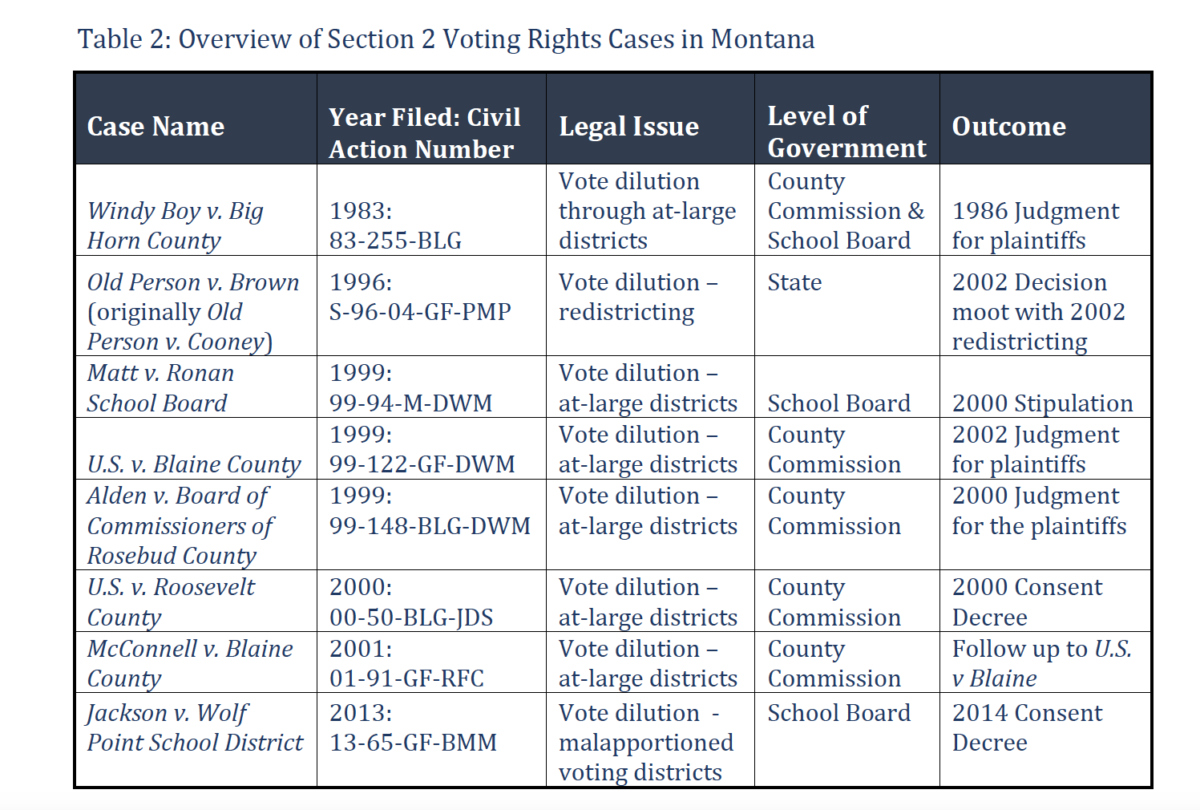
In February of 2016, Moana Vercoe wrote a report detailing the history of voter disenfranchisement of Native Americans in Montana. She found that with the exception of the Chippewa Cree of Rocky Boy’s Reservation, vote dilution litigation under Section 2 of the Voting Rights Act (VRA) has been brought by American Indians living on every reservation in Montana.
In the most recent case, Indian People’s Action and Four Directions, a Native voting rights group, worked with tribal members from the Fort Belknap, Northern Cheyenne and Crow reservations to sue to make Blaine, Big Horn and Rosebud counties establish satellite registration and voting sites on their reservations. In June 2014, state and county election officials settled the case with the tribal plaintiffs and agreed to establish satellite offices on the reservations twice a week through Election Day, albeit with reduced hours of operation, and only if requested by tribal leaders.
Hawk, from Indian People’s Action, told Truthout that the case showed that the conditions facing American Indians living on Reservations in Montana combined with the location of election offices denied Native voters equal opportunity to participate in the political process.
“As we are working to increase Native voter turnout we are also using litigation to reduce the remaining institutional barriers.” Hawk told Truthout. “There is still more to be done.”
Pease noted that the sheer amount of litigation in Montana related to voting and Native American disenfranchisement gives insight into the pervasiveness of institutional discrimination and the structural and racial barriers that Natives come up against when they seek equal access to political participation in Montana. These barriers include racial discrimination at polling stations, extreme distances to the current voting offices, cultural communication barriers, and demands for evidence of street addresses that many times don’t exist on the reservation.
Prairie Big Horn, an enrolled member of the Fort Peck Sioux Tribes, has even experienced discrimination in one of Montana’s most liberal communities. Big Horn is executive director of the American Indian Business Leaders, a non-profit that works to help increase the representation of American Indians and Alaska Natives in business and entrepreneurial activities.
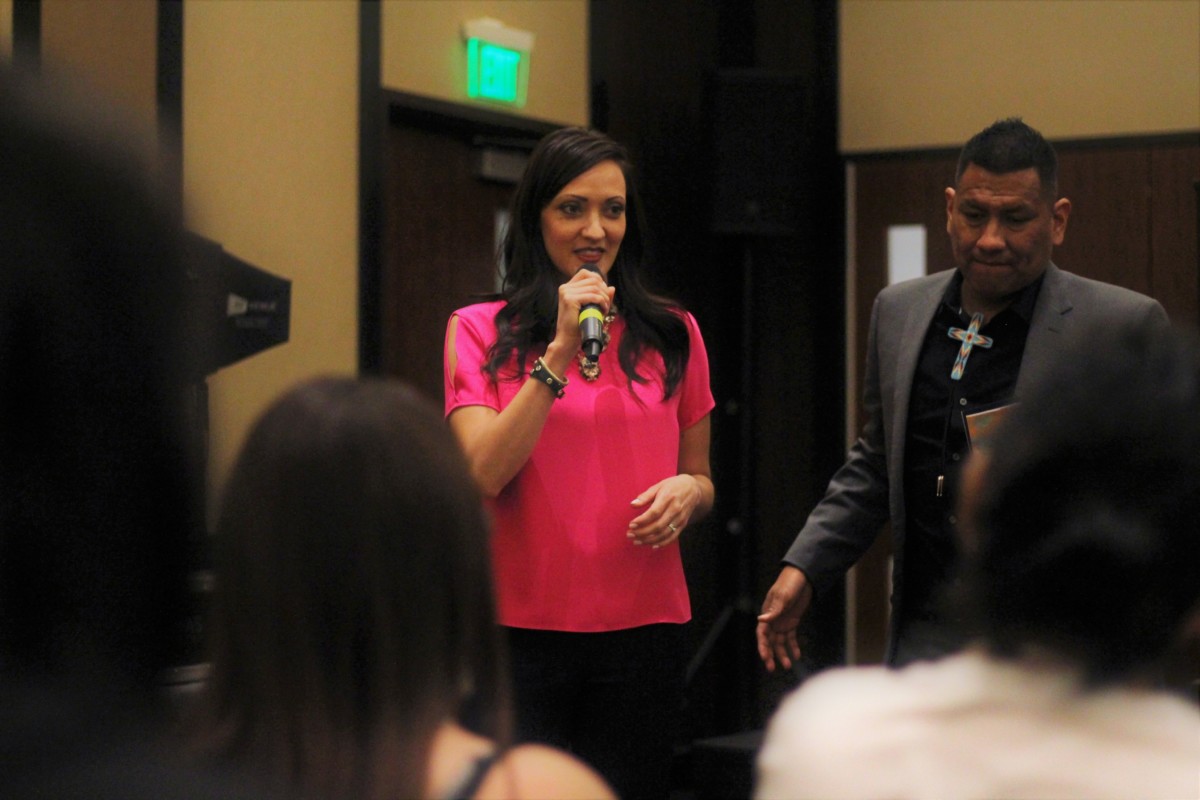
“I had just moved to Missoula and I went to vote. I didn’t have my voter identification card and the woman told me I couldn’t vote. I knew my rights, I knew she was wrong. She wouldn’t even look at the voting list. After I persisted she finally let me vote,” Big Horn told Truthout. “It was a surreal experience. This is what our people face when they get to the polls. I felt like I didn’t belong. It felt like I was doing something wrong and I thought, what if I hadn’t known my rights? I may have gone home and never tried to vote again.”
Bighorn knows that incidents like this happen to Natives all over Montana. This Election Day, she will sit at a polling station so she can be an advocate, answer questions and help people who are being turned away.
“This is a multifaceted issue. The satellite offices are a good start, but they aren’t enough. We need to deal with these issues from lots of different angles,” Big Horn told Truthout.
For his part, Tester has made efforts to address the many barriers that Natives have at the ballot box. In 2015, Tester introduced a bill to require each state to establish polling locations on reservations upon request from the tribe, including early voting locations in states that allow votes to be cast prior to Election Day. The bill also directs state election administrators to mail absentee ballots to the homes of all registered voters if requested by the tribe.
“We have an obligation to ensure all Native American’s have access to the ballot box either in person, by mail, or at a satellite voting office,” Tester told Truthout. “I will hold this administration accountable to ensure everyone across Indian Country has access to the ballot.”
The Tester campaign seems to realize the importance of the Native vote for his re-election. He has a full-time staffer dedicated to Native American issues, and the state Democratic Party has two Native American organizers at each of Montana’s seven reservations.
Snow is optimistic that they’ll see another jump in voter turnout on reservations for the midterm election. She smiles as she talks about what she sees for tribal nations in Montana in the future.
“In 20 years, we are going to see more registered voters, more educated voters, and more representation in our state legislature,” she said. “We’ll have more Natives running for office and winning and giving us a voice. We’ll be creating our own policies for our communities.”
A terrifying moment. We appeal for your support.
In the last weeks, we have witnessed an authoritarian assault on communities in Minnesota and across the nation.
The need for truthful, grassroots reporting is urgent at this cataclysmic historical moment. Yet, Trump-aligned billionaires and other allies have taken over many legacy media outlets — the culmination of a decades-long campaign to place control of the narrative into the hands of the political right.
We refuse to let Trump’s blatant propaganda machine go unchecked. Untethered to corporate ownership or advertisers, Truthout remains fearless in our reporting and our determination to use journalism as a tool for justice.
But we need your help just to fund our basic expenses. Over 80 percent of Truthout’s funding comes from small individual donations from our community of readers, and over a third of our total budget is supported by recurring monthly donors.
Truthout has launched a fundraiser, and we have a goal to add 182 new monthly donors in the next 24 hours. Whether you can make a small monthly donation or a larger one-time gift, Truthout only works with your support.
